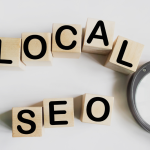Local Search Engine Optimization (SEO) is a vital tool for businesses wanting to connect with nearby customers and stand out in their region. At LinkLumin in Toronto, we understand how local searches can drive targeted organic traffic, boost phone calls, and establish deeper ties with your community. By honing your local SEO strategies, you can enhance search visibility, collect positive reviews, and ultimately strengthen your reputation as a trustworthy business. In this post, we’ll examine the key components of local SEO and show how an effective plan helps you achieve tangible, community-focused goals.
Why is Local SEO Important?
Local SEO ensures your business is easily found by potential customers who use searches to locate services within their specific geographic location. In cities like Toronto or elsewhere in North America, online visibility for a local business owner translates to increased foot traffic, better conversion rate, and more phone inquiries. When a well-structured local SEO marketing strategy aligns with your business goals, you attract nearby customers searching for precisely what you offer, leading to consistent growth in organic traffic.
Key Components of Local SEO
Local SEO goes beyond general Search Engine Optimization by targeting search ranking factors that specifically affect businesses with a physical location. From Google Maps listings to online directories, each component influences how you appear in local search engine rankings. As search engines like Google continually refine their local algorithms, businesses must stay informed of evolving ranking factors. This includes regularly updating business details, optimizing your Google Business Profile, and focusing on generating quality content tailored to regional search terms.
Google Business Profile Optimization
A fully optimized Google Business Profile (previously known as Google My Business) is central to a successful local SEO campaign. Your Business Profile is where search engines gather essential information about your brand—like phone number, business hours, address, and business category. Ensuring these details remain correct and up to date enhances your search visibility on relevant local queries. By adding photos, a thorough business description, and accurate business listings, you help the house team at Google connect prospective customers to your doorstep, both online and offline.
Name, Address, Phone (NAP) Consistency
Name, Address, Phone (NAP) Consistency is a fundamental aspect of local SEO. Inaccurate or inconsistent data across online directories—such as Yelp, Yellow Pages, and other business directories—confuses both search engines and potential buyers. This can lead to lost traffic and diminished trust. Use powerful tools like Moz Local or Semrush Local to verify your NAP across various listings. Keeping consistent details boosts your credibility, ensuring that search engine crawlers serve correct information to individuals making local searches.
Local Keyword Research
Targeting relevant keywords for your target market is essential in local SEO. This goes beyond general terms to focus on Long-tail keywords that incorporate specific search intent plus geographic modifiers like “Toronto” or the neighborhood where you operate. Leverage Keyword Research software—such as Google Search Console, Search Engine Journal resources, SEO Checker, or even AI-powered reviews platforms—to identify search volume and potential high-value phrases. By aligning your content with local user behavior, you attract organic searches from customers actively seeking digital marketing services or products in your area.

Online Reputation Management
Your online reputation plays a crucial role in local SEO. For local SEO optimization, reviews and ratings on platforms like Google, Yelp, and niche review websites offer valuable social proof to prospective customers. Positive feedback conveys a sense of quality of service, while negative reviews can deter business prospects. Proactively managing your reputation—through Review management, responding to feedback, and mitigating conflicts—shows your commitment to keeping happy customers. In turn, strong reviews contribute to better local search rankings because it signals trustworthiness to major search engines.
Local Directories and Citations
Citations from reputable online listings and local business directories function as endorsements of your business identity. These references typically include business details such as your brand name, address, and phone number, giving search engines confidence in your authenticity. Services like listings management and citations service help maintain these references across various third-party sites. By reinforcing your local presence through consistent citations, you enhance your brand’s reliability and boost your chance of appearing in the map pack (often called the snack pack) for relevant local search queries.
Engaging with Customer Reviews
Customer reviews directly affect your local SEO performance. High average star ratings attract more clicks, which elevates search ranking factors such as dwell rate and lowers bounce rate. Encourage satisfied customers to leave online reviews, highlight them on your social media profiles, and tackle negative reviews constructively. By openly engaging with your local audience—acknowledging feedback, thanking them for positive experiences, and implementing improvements where needed—you showcase your brand’s customer-centric values. Over time, these interactions amplify your brand’s reputation and help secure better SEO rankings.
Creating Localized Content
Producing localized content is integral for building a strong local digital footprint. Whether it’s content marketing campaigns aimed at a specific Toronto neighborhood or news about local events, your content should reflect the culture and interests of your target audience. This can involve blog posts showcasing local stories, region-based tutorials, or interviews with community figures. Integrate internal linking practices, directing visitors to relevant pages on your site, while also weaving in keywords that your local audience uses. High-quality pieces that resonate with your immediate community often yield inbound links from local bloggers or organizations, bolstering SEO efforts.
How Local SEO Works

Local SEO connects search engines with businesses relevant to a user’s target location. An effective local plan comprises strategic SEO efforts like on-page description tags, link building with local websites, and maintaining a thorough Google Business listing. Additionally, broken links can hamper your site’s SEO Search potential, so consistent site maintenance is vital. Local search results are more than a standard “blue link” listing; they often appear in the map pack, giving searchers direct access to your address, phone, and directions. By focusing on local signals, your brand becomes visible for the right audience at the right time.
Understanding Local Search Algorithms
Search engines rely on specialized algorithms for local queries, concentrating on factors like geographic relevance, business prominence, and consistent contact information. Tools such as Search Engine Land, Marketing Blendz, or Sterling Sky share insights on how these systems operate. Local search algorithms place emphasis on online reviews, domain authority, and the volume of Inbound links from local sites. Additionally, your business category, location data, and user engagement all feed into how you rank in Google Search or appear in Google Maps. By refining your local signals, you empower search engines to understand who you are and where you serve.
Importance of Geographic Targeting
Geographic location is essential in matching a local business to nearby queries. By integrating your business location in website copy, meta tags, and structured data, you inform search engines of your local presence. This synergy between content and location fosters better alignment with search terms like “Toronto SEO” or “digital marketing agency near me.” For example, mention your local neighborhood or city throughout your content, so local customers searching “SEO Toronto” or “digital marketing company in downtown Toronto” can easily find your brand.
Role of Local Backlinks
Securing local backlinks from high-authority or regionally relevant pages acts as a strong vote of confidence for major search engines. Partnerships with local charities, community events, or influencer collaborations can yield quality links that showcase your involvement in the local scene. These endorsements directly impact your search engine rankings because they signal authenticity and engagement in the area. Participating in local online forums or supporting city-based nonprofits allows you to develop beneficial relationships while solidifying your brand’s local standing.
Utilizing Social Media for Local Presence
Social media profiles help you connect with your target audience while advancing your local SEO presence. Promoting location-specific content, announcing community events, and sharing local success stories can boost user engagement. Platforms like Facebook, Instagram, or LinkedIn also let you list your business hours, link back to your site, and display contact information. As you strengthen connections online, you gain brand ambassadors who share your content with others in your community—potentially generating new leads, online visibility, and higher local search performance.
Strategies for Enhancing Local SEO
Local SEO requires a comprehensive approach that merges technical optimization with relationship-building. Prioritizing site speed, mobile searches readiness, and internal linking best practices ensures you cater to modern user preferences. Meanwhile, word-of-mouth marketing thrives when your brand invests in neighborhood events, invests in online reputation management, and fosters genuine ties with local businesses. Combining these aspects leads to effective brand recall, trust, and loyalty, strengthening your place in the local market.
Optimizing Website for Local Searches
A robust website structure is the cornerstone of local SEO success. Elements like description tags, well-placed relevant keywords, and quality content designed for local users guide you toward top positions in local search engine results. Eliminating broken links, improving page load times, and ensuring a user-friendly design decreases your bounce rate—one of the many SEO ranking factors that matter in local results. By catering to user expectations and search intent, your brand gains an edge, beating out competitors who overlook on-page clarity.
Leveraging Google My Business Features
Google My Business offers a variety of features that enhance local presence, from posting announcements to listing seasonal business hours. Using these features sends strong signals to search engines about your active engagement and reliability. You can also experiment with Google Ads geo-targeted campaigns to reinforce your brand among local audiences. By consistently posting updates, adding new photos, and tracking metrics via Google Search Console or your monthly SEO reports, you create an evolving digital storefront that appeals to both passersby and online shoppers.
Building Relationships with Local Influencers
Local collaborations often produce the best results for targeted marketing. Partnering with a relevant community leader—be it a blogger, social media personality, or local organization—can yield new followers, positive reviews, and, in some cases, inbound links. As you design a local outreach plan, identifying niche influencers who align with your brand’s business goals is essential. This synergy boosts your credibility, showcases your interest in supporting local causes, and cultivates a sense of community loyalty. Over time, these local influencer connections contribute to meaningful SEO efforts that strengthen brand authenticity.
Measuring Local SEO Success
Once you’ve launched a local SEO plan, tracking progress is critical for refining your approach. Observing metrics like phone calls from the pack, direction requests, or store visits offers insights into how effectively you’re capturing local interest. Meanwhile, digital indicators like SERP positions for keyword rankings, improvements in organic rankings, and local traffic patterns inform your next steps. By evaluating performance, you can tweak your content, structure, or citations to align with changing local demand.
Key Metrics to Monitor
Critical metrics include your site’s bounce rate, conversion rate, monthly phone inquiries, average star ratings, and the quantity of satisfied customers. Keep tabs on your local SERP positions for specific Long-tail keywords, as well as any changes in your reputation or online visibility across local platforms. Using specialized SEO tools—like Semrush Local, Search Engine Land resources, or Marketing Blendz analytics—can streamline data collection and highlight areas needing improvement.
Tools for Local SEO Analysis

A variety of SEO tools cater specifically to local marketing. Moz Local, Google My Business optimization service dashboards, and Search Engine Journal guides each offer valuable capabilities for auditing your presence. Some solutions, like Coalition Technologies or Sterling Sky, feature advanced software to gather user insights and compile a detailed report. Meanwhile, Google Search Console helps monitor site health, ensuring you quickly fix issues—like broken links—that may harm your local or broader SEO standing.
Case Studies: Successful Local SEO Implementations
Countless examples illustrate how a robust local SEO approach drives real gains. Agencies like Joy Hawkins’ Sterling Sky or achievements documented by Adam Heitzman at Producer Trainee – Marketing level show how small businesses can flourish with strategic local digital marketing campaigns. Another notable story is how Marketing Blendz helped a retailer’s online phone directories presence skyrocket by refining their business listings and building credible local Inbound links. These transformations underscore how local SEO, done right, can turn a modest online footprint into a thriving digital marketing company success story.
Conclusion: Building Community Connections Through Local SEO
Local SEO fosters genuine relationships between your business and the people in your community. By refining a region-specific SEO plan, leveraging quality references, and ensuring your online presence remains consistent, you can reach the right customers at the right time. At LinkLumin, Toronto, our SEO Specialists are here to help amplify your impact and ensure you maintain a strong local footing. Contact LinkLumin today to explore a Custom Plan for local search success, enhance your local search engine optimization services, and build lasting community connections that drive meaningful results.
Tags




